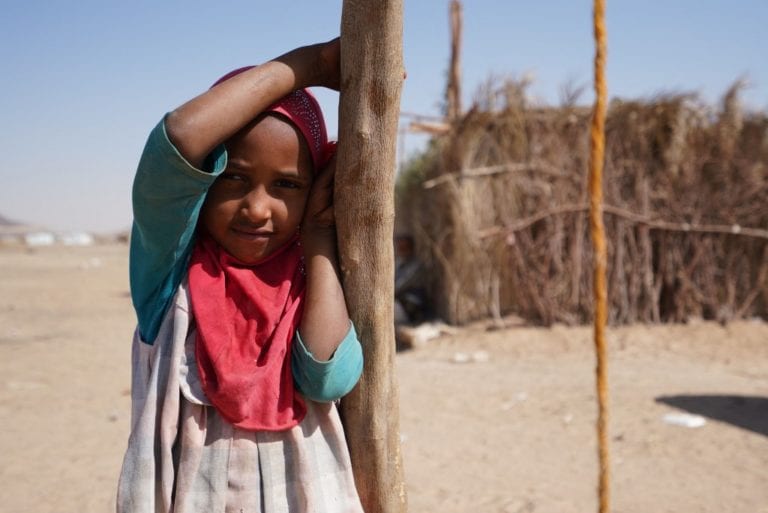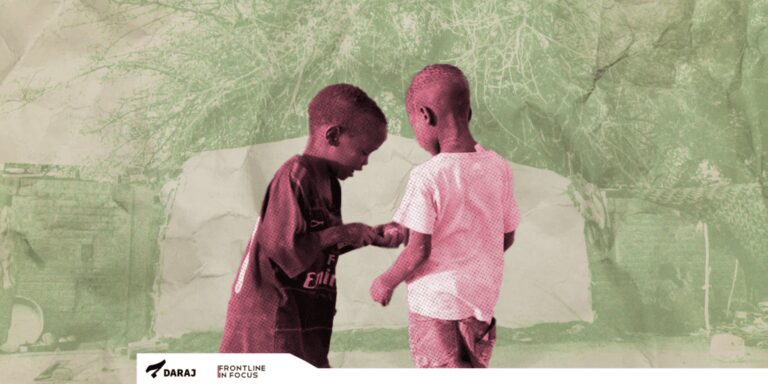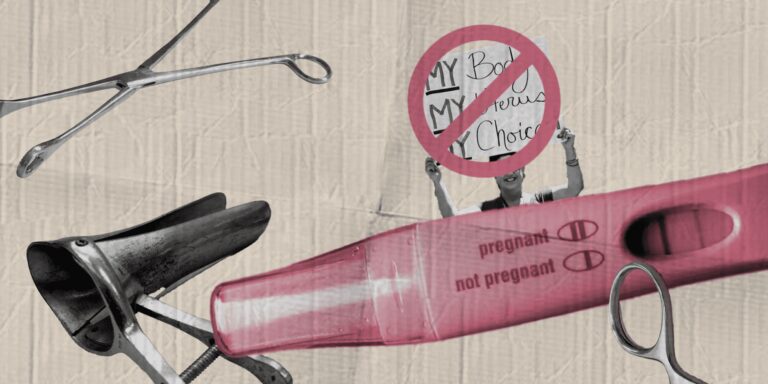“He grabbed my hair and poured acid on me, while laughing.” With those words, Al-Anoud Sheryan made the hearts of millions of Yemenis bleed. The 19-year-old fell victim to one of the most hideous crimes against women ever committed on Yemeni soil, and that only a few months after the murder of Marwa El Beity, who was set on fire by her husband.
The crimes are an indication of the an increasing level of violence Yemeni women are facing, which is not restricted to individual crimes, but comes within a wider context of violence stemming from the family and society as a whole.
From Anoud’s video recording and the conversations Daraj had with some of her relatives, it becomes clear that she has been the victim of a long list of violations, the first of which was being married against her will at the tender age of 12. Anoud lost her father at a child, so her mother wanted to ensure she married someone who could provide for her.
“The crime was clearly planned by the perpetrator,” he added. “He used a lethal weapon, acid, to maim a girl in her face, body and eyes”
It is the prevailing culture for many families that marriage is arranged for girls regardless of will, age and the dangers involved. Anoud’s mother died shortly after the marriage and never knew her daughter had in fact married a human wolf.
From the start, Abdullah Abdul Rahman Al Dajat beat her repeatedly and violated her in other ways. She only found some relief and freedom when they divorced and kicked her out four years later. She moved in with her sister and started training to become a nurse.
After a while, however, her ex-husband decided he wanted her back. When she refused to return he took his terrifying revenge. One day he broke into her sister’s house, carrying with him hydrofluoric acid, a chemical substance that has the power to glass. After threatening to pour it on her sister’s child, she forcibly walked up to him. He grabbed her by the hair and poured the acid.
All she could do in response was to attempt a failed suicide.
Some three months after the crime, Anoud appeared on social media with only one eye, her face and body suffering from terrible 3rd and 4th degree burns. According to the information she revealed on her sick bed at the Unimax Hospital in Sanaa, she requires two surgeries and three skin transplants.
After Anoud’s story went viral, security services under control of the Houthi movement (Ansarullah) announced they had captured her husband in the Saada Governorate, from where he reportedly was trying to flee to Saudi Arabia. This was three months after the crime. Until that moment, he had continued to send Anoud messages, threatening to also burn her other eye.
A Weapon More Dangerous than a Firearm
While all eyes set on the forthcoming trial, many Yemenis have called for the death penalty.
“The crime committed against Anoud is a colossal case,” lawyer Abdullatif Al Muhya told Daraj. “It was committed with criminal intent and the utmost brutality. Yemen law has strong articles. We should demand to execute what is stipulated in text and spirit, so that the perpetrator does not get away with his crime and serve as an example for others.”
“The crime was clearly planned by the perpetrator,” he added. “He used a lethal weapon, acid, to maim a girl in her face, body and eyes. The crime is considered [attempted] murder with a lethal instrument far more dangerous than a firearm.”
Society to Blame
Anoud managed to draw attention not only to her own case, but also to the wider issue of domestic violence in Yemen, as well as the dominant traditional view of women, and the absence of laws that could help deter and put an end to violence against women.
Although it is a rare thing to happen, according to Yemeni writer Jihad Al Jeffri, Anoud experienced a horrendous and condemnable crime committed by Yemeni society as a whole.
“Given the bad security situation, the culture of vulnerabilization of women and the fact Sherjah didn’t have powerful parents to protect her, her lowlife ex-husband was able to take advantage of her,” she told Daraj. “Afterwards, however, the Yemeni people were on the lookout for him.”
“Violence against women is the result of ignorance, bullying and the weak law, as sanctions are not up to the level of the act,” she continued. “This reassures some people that there is no deterring power to protect the weak from the strong.”
According to her, Anoud’s case also makes clear to what extent some men despise women and love to humiliate them, which she thinks is due a decadent culture and collapsed morals.
“Therefore, we demand to execute this morally deviant man, who wanted to destroy Anoud’s spirit before he destroyed her body,” Al Jeffri said, calling upon all women activists to raise their voice against domestic violence. “He must be punished with a sanction that will make him an example, so that crimes against women may stop.”
Female activist Haifa Abdelwahed met with Al-Anoud and stressed her condition requires urgent treatment abroad.
“Chauvinist society is responsible for violations against women,” she told Daraj. “And ‘the state’ is responsible, as it has not worked seriously to enact laws for the protection of women against domestic violence.”
“We need to raise awareness of the importance of women in society, respect them and give them all of their rights,” she said. “Also, we should incriminate domestic violence and underage marriage, given the psychological and health damages it causes.”
Burnt to Death
The tragedy of Anoud was not a first. And will arguably not be a last. It comes only months after an equally horrendous crime in the Governate of Hadhramaut. Mohammed Hassan al-Jifri poured petroleum over his 28-year-old wife Marwa Al Beity (28) and set her on fire, which led to her death after five days in intensive care.
Family spokesperson Salah Al Beity told Daraj that Marwa’s troubles started immediately after her marriage ten years ago. “She had thought marriage was a sacred bond and that by moving into her new conjugal life she would live a happy life, filled with love and affection, and that she would get warmth and protection from her partner in life.”
“However, she was stunned by his mistreatment, his physical and verbal abuse during the first years of marriage,” Al Beity continued. “Every time she complained to her parents. But they advised her to be patient, hoping her husband would get back to his right mind, avoid divorce, and be considerate of their two children Fatima and Ibrahim.”
After a few years, Marwa had enough. She left her husband taking refuge in her parents’ house. She spent over a year there refusing to go back to him. But her husband made an effort showing he was still attached to her and that he regretted his actions. He repeatedly asked her to come back, even in the presence of his parents who assured he had changed. They even guaranteed he would not cause her any harm.
“Marwa succumbed and went back to him,” Al Beity said. “But within months her husband returned to his old habits. And then one night in late November 2020, he committed his horrendous crime. He burnt her to death by pouring petroleum over her and setting her on fire in front of her two young children. He left her in agony for 10 hours before driving her to hospital. She stayed in intensive care for five days before taking her last breath.”
“Violence against women is the result of ignorance, bullying and the weak law, as sanctions are not up to the level of the act, which reassures some people that there is no deterring power to protect the weak from the strong.”
The horrendous crime is unprecedented within the conservative Hadhramaut society, as well as Yemen and the Arab world as a whole.
“Marwa’s husband is accused of murder and is on trial west of Mukalla,” said Al Beity. “Her family, tribe and society demand the defendant be sentenced to death, so that he will serve as an example to others.”
Family Responsibility
According to Al Beity, part of the responsibility for the emergence and spread of domestic violence lies with the husband’s family and the wife’s parents. When the first signs of violence appear or if the daughter complains, they must ask for mukhala’ah [divorce in return for monetary compensation] and separate her from the husband who does not appreciate marital life.
He also stressed that society should work on deterring domestic violence: “The state must enact strict laws regarding the perpetrator of domestic violence, especially against women and children, while imams and media should raise awareness of these sinful and violent practices.”
“Talibanization”
While the aforementioned killings took place, a campaign to promote the traditional view of women, including a ban on mingling, was launched in the areas under control of the Houthi movement.
“For two weeks the Friday sermons in Sanaa were all about women, women’s clothes, women’s voices and the call for the chauvinist society to control women’s morality,” activist Radia Al Mutawakkil, head of the Muatana Human Rights organization, wrote on her Facebook page.
“Separating between men and women is well underway in universities, schools and public places,” she added. “The rule that women are guilty until proven innocent is being entrenched. It even reached the point of firing a restaurant’s female workers, although this seems to have been revoked under public pressure. Still, changes were imposed in accordance with the new concepts of decency, while the veil was imposed even on a non-Muslim worker.”
“This is but one of many details that show an active orientation towards the Talibanization of society, towards putting restrains on women, and putting an end to all achievements concerning individual liberties that both women and men fought for over years.”
This article was translated from Arabic to English by Celine El Natour.
Read Also:







